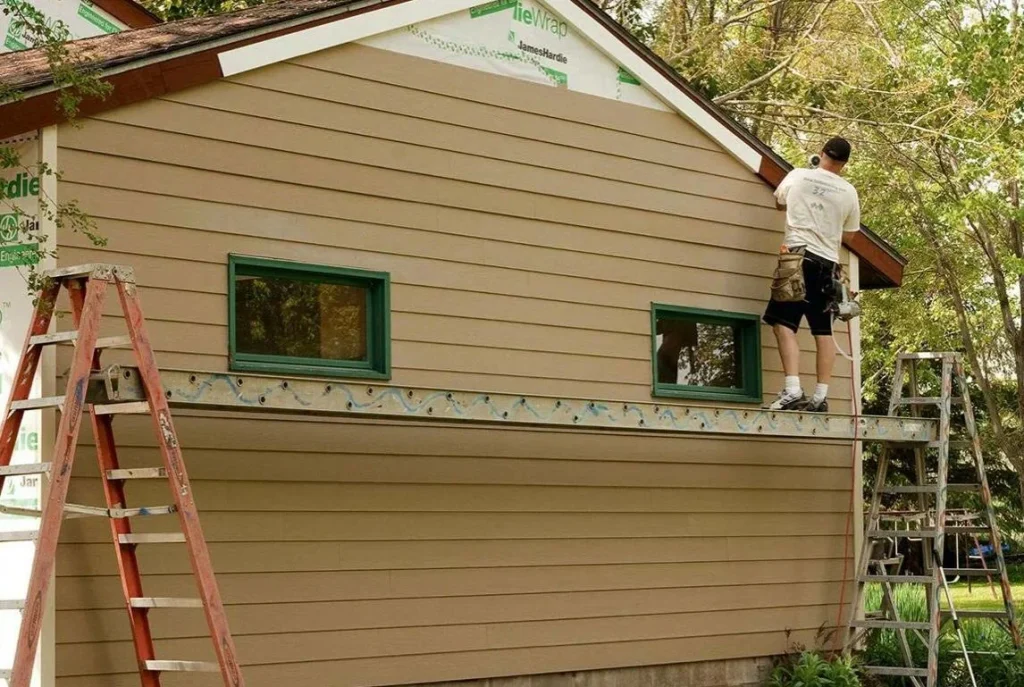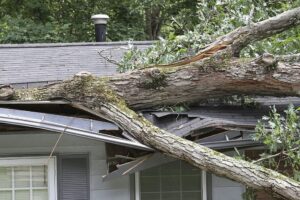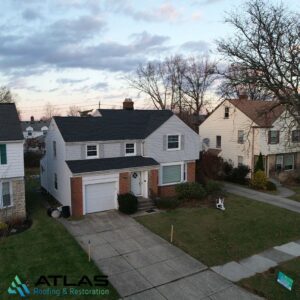Living in Cleveland means enjoying the vibrant culture, beautiful neighborhoods, and proximity to Lake Erie. However, with that lake effect weather comes intense storms that can leave your home vulnerable—especially your siding. Whether it’s high winds, hail, or torrential rain, siding often takes the brunt of nature’s wrath. If your home’s siding has recently been damaged by a storm, it’s crucial to act fast. This comprehensive guide will walk Cleveland homeowners through identifying, repairing, and preventing storm-damaged siding.
Why Siding Matters More Than You Think
Your siding is more than just a cosmetic feature—it’s your home’s first line of defense against moisture, pests, wind, and extreme temperatures. It provides insulation, prevents structural damage, and enhances curb appeal. When a storm damages your siding, you’re not just looking at a visual issue; you may be risking leaks, mold growth, and even foundational damage if left untreated.
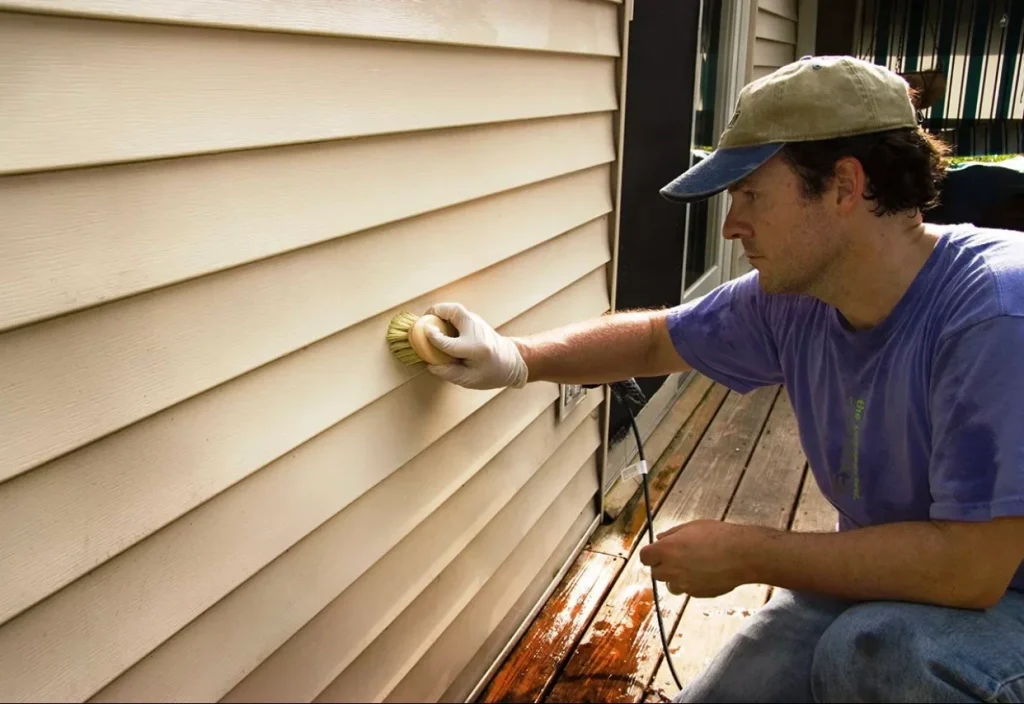
Common Types of Storm Damage to Siding
Storms in the Cleveland area can damage siding in several ways:
1. Wind Damage
High winds can rip panels off completely or cause them to become loose. Even if siding appears intact, loose panels can allow water to seep behind the material.
2. Hail Damage
Hail is particularly destructive to vinyl and aluminum siding. It can cause cracks, dents, and holes, which reduce both the integrity and appearance of your exterior.
3. Water Damage
Heavy rain can exploit even the smallest gap or crack. Water infiltration behind siding can cause rot, mold, and insulation issues.
4. Flying Debris
During strong storms, debris like branches or lawn furniture can strike your siding, leaving behind cracks or punctures.
Step-by-Step: What to Do After a Storm
1. Assess the Damage Safely
Once the storm passes, walk around your home and do a visual inspection. Look for:
- Cracked or broken siding panels
- Missing or detached sections
- Discoloration from water infiltration
- Warping or bulging areas
- Dents from hail or debris
Take pictures from various angles to document everything. These photos will be essential if you file a homeowners insurance claim.
2. Check for Hidden Problems
Some damage isn’t always visible right away. If you notice:
- Increased energy bills
- Drafts inside the home
- Musty odors near walls
…it might indicate hidden moisture behind the siding. A professional inspection is advised.
3. Contact Your Insurance Provider
If the damage is significant, you may qualify for a partial or full insurance payout. File a claim promptly and provide documentation, including:
- Photos of the damage
- Receipts from prior siding work (if any)
- A written estimate from a licensed contractor
4. Temporary Measures to Prevent Further Damage
While waiting for repairs, consider placing a waterproof tarp over the affected area or using weatherproof tape to cover cracks. This will help prevent further moisture infiltration.
Repair vs. Replace: Making the Right Call
Minor Damage
If the storm only damaged a few panels, spot repairs may be sufficient. In most cases, individual siding panels can be replaced or patched.
Moderate Damage
If several panels are affected but the underlying structure is still sound, partial replacement might be the best choice. However, matching the new siding with the existing material can be tricky due to fading or discontinued colors.
Severe Damage
If your siding is extensively damaged, aged, or no longer available in the market, a full siding replacement may be necessary. This option is more costly upfront but can increase your home’s value and energy efficiency.
Choosing the Right Siding Material for Cleveland Weather
When it’s time to repair or replace storm-damaged siding, consider materials that stand up well to the local climate:
Vinyl Siding
Affordable and low-maintenance, vinyl siding resists moisture and insects but can be susceptible to cracking in cold weather or denting from hail.
Fiber Cement
Extremely durable and fire-resistant, fiber cement can mimic the appearance of wood but holds up better in high winds and harsh weather.
Engineered Wood
Gives the look of traditional wood but with better resistance to pests and moisture.
Metal Siding
Aluminum or steel siding is durable and fire-resistant, though it can be prone to denting.
Preventing Future Storm Damage
While no siding is entirely storm-proof, there are steps you can take to minimize future damage:
1. Regular Maintenance
Check your siding annually for cracks, warping, or loose panels. Address minor issues before they escalate.
2. Secure Outdoor Items
Patio furniture, grills, and yard decor should be anchored or brought inside before storms to prevent them from becoming projectiles.
3. Trim Trees and Branches
Keep tree limbs trimmed away from your house to reduce the risk of branches hitting your siding.
4. Install Impact-Resistant Siding
If you’re replacing siding, invest in products rated for high impact and wind resistance. Some materials come with warranties covering storm-related damage.
Hiring a Trusted Contractor in Cleveland
Hiring a reliable siding contractor is crucial to ensure the job is done right. Look for a company that:
- Is licensed and insured
- Offers free inspections and estimates
- Works with insurance claims
- Has positive local reviews and testimonials
- Uses high-quality materials with strong warranties
Avoid storm chasers—contractors who travel from state to state following severe weather. They may offer low prices, but often deliver subpar work and disappear when issues arise later.
Why Timing Matters
Storm damage left untreated can quickly escalate. Moisture intrusion may lead to interior damage, mold growth, and structural weakening. Acting promptly ensures:
- Lower repair costs
- Better chances of successful insurance claims
- Improved energy efficiency
- Preserved property value
Final Thoughts: Don’t Wait Until It’s Too Late
Cleveland weather can be harsh and unpredictable, but with the right plan and professional support, storm-damaged siding doesn’t have to become a long-term problem. Be proactive, educate yourself, and when the time comes, choose a contractor you can trust.
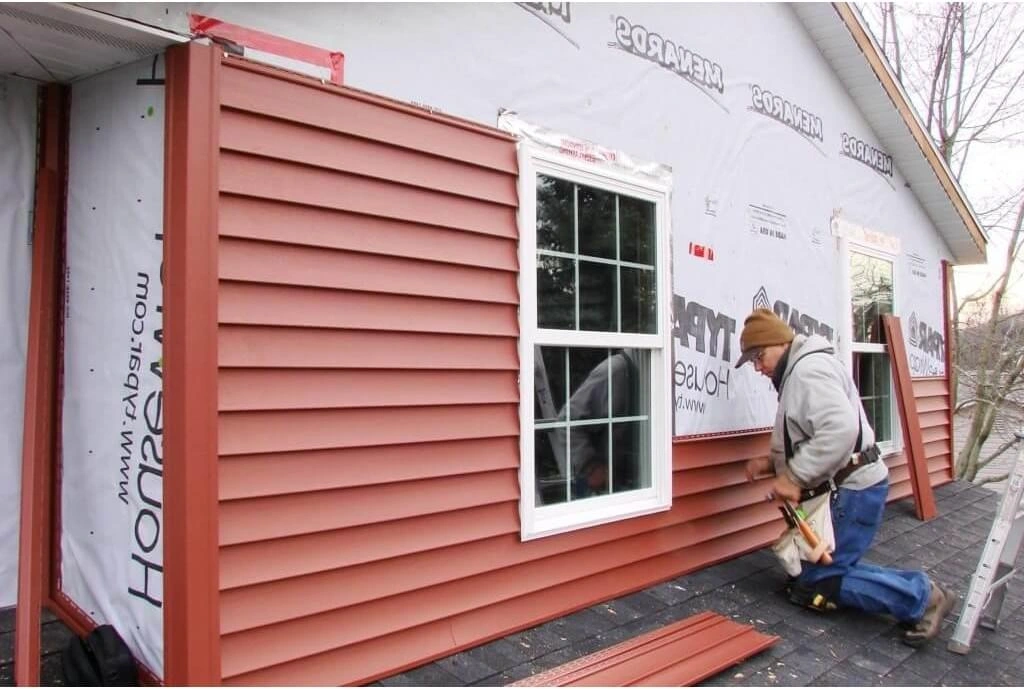
Need Help? Call the Experts at Atlas Roofing & Restoration
If your home’s siding has been damaged by a recent storm, Atlas Roofing & Restoration is here to help. With years of experience serving Cleveland and the surrounding areas, our team specializes in storm restoration, siding repair, and full exterior renovations.
We offer:
- Free inspections and detailed assessments
- Help navigating the insurance claim process
- A wide range of durable siding options
- Fast, professional, and reliable service
Protect your investment, restore your peace of mind, and trust Cleveland’s siding repair experts. Call Atlas Roofing & Restoration today or visit us online to schedule your free consultation.

